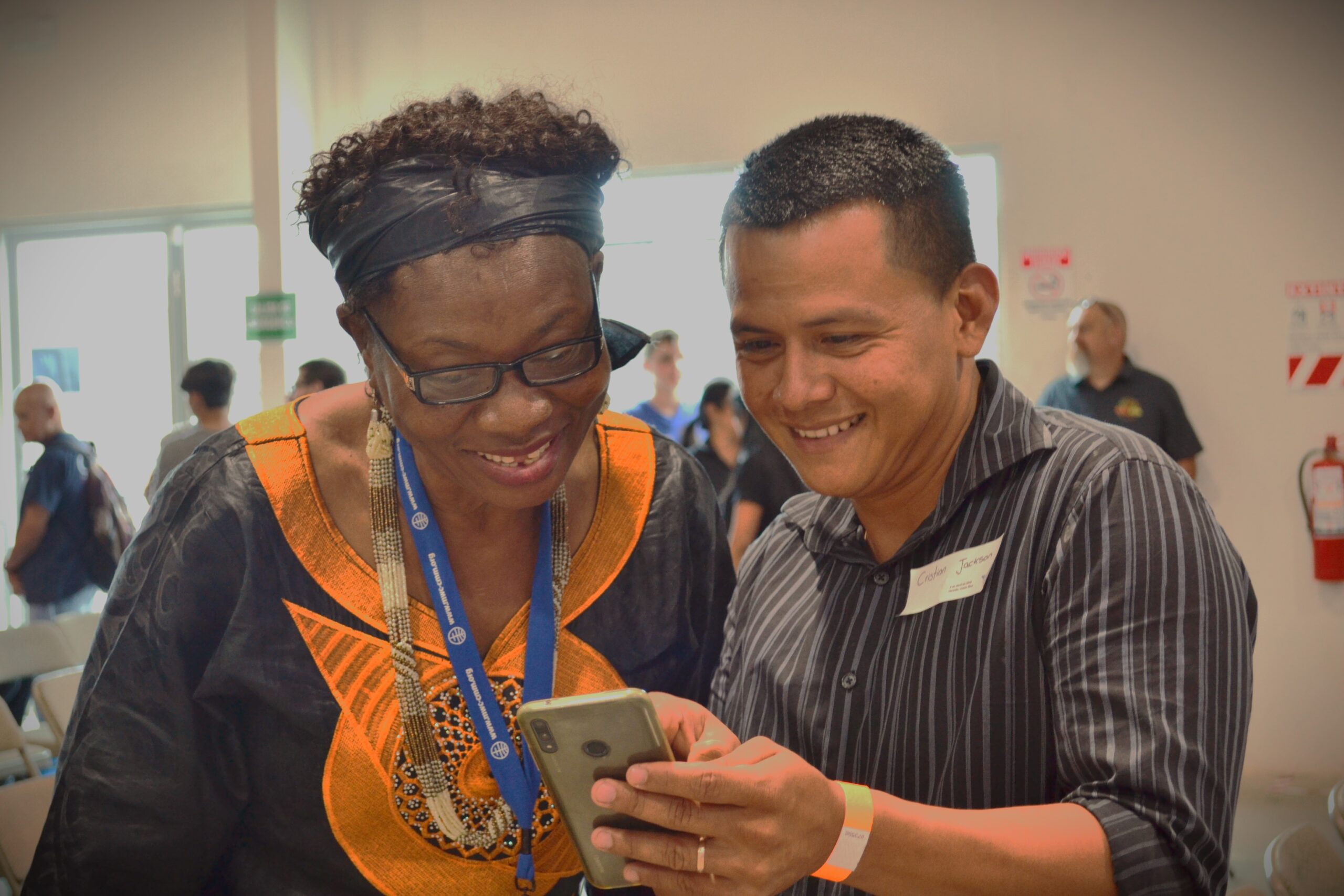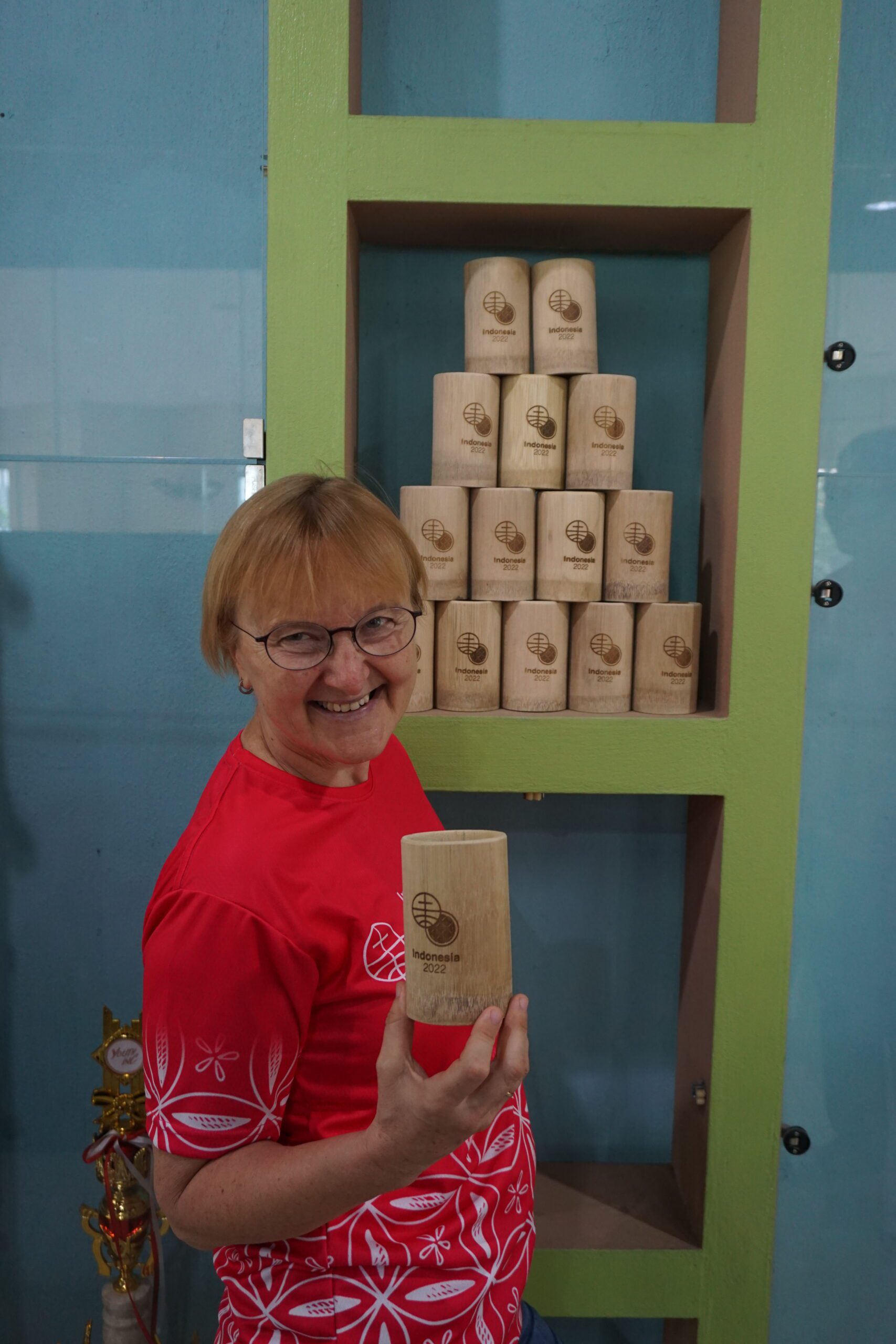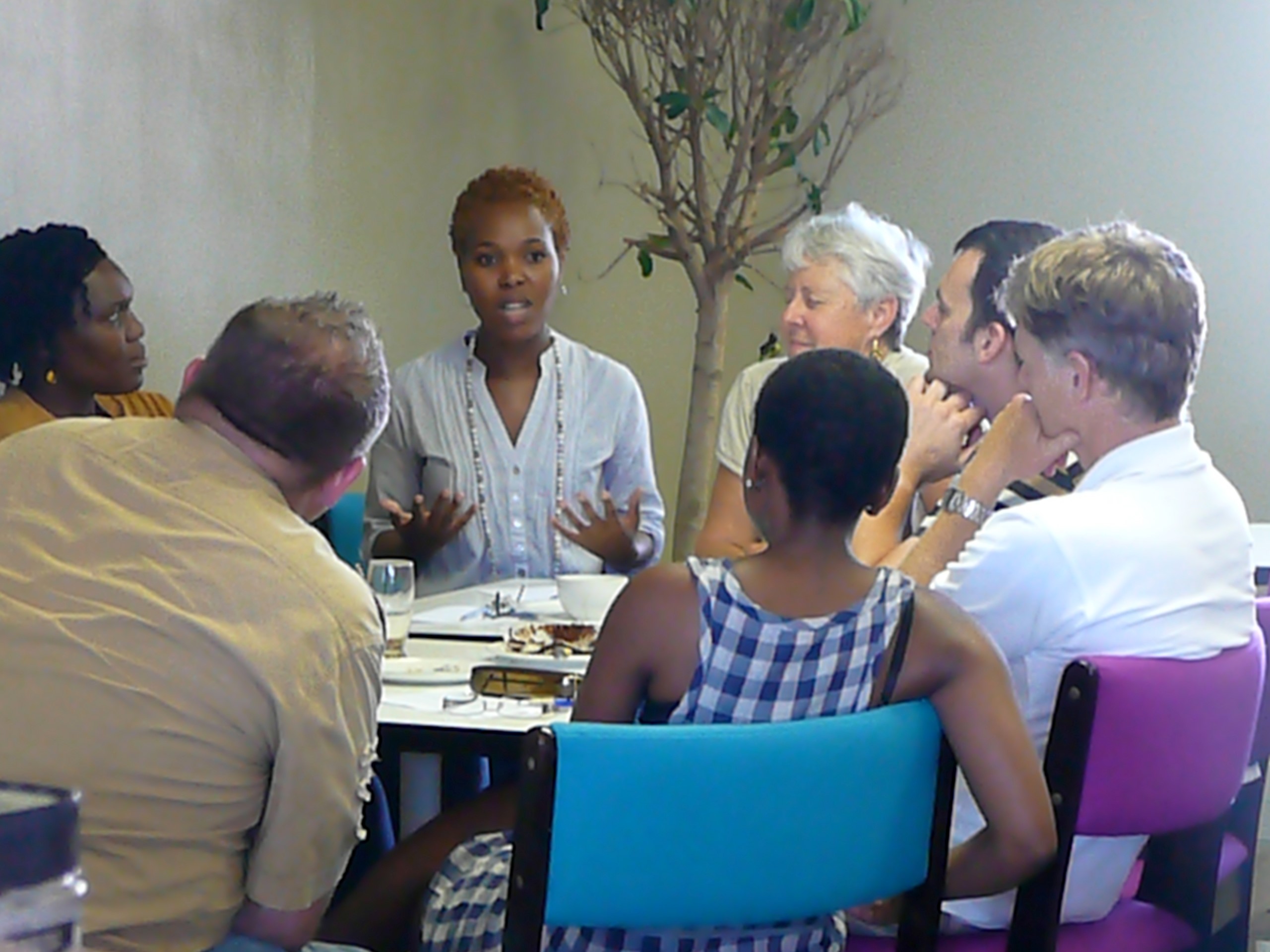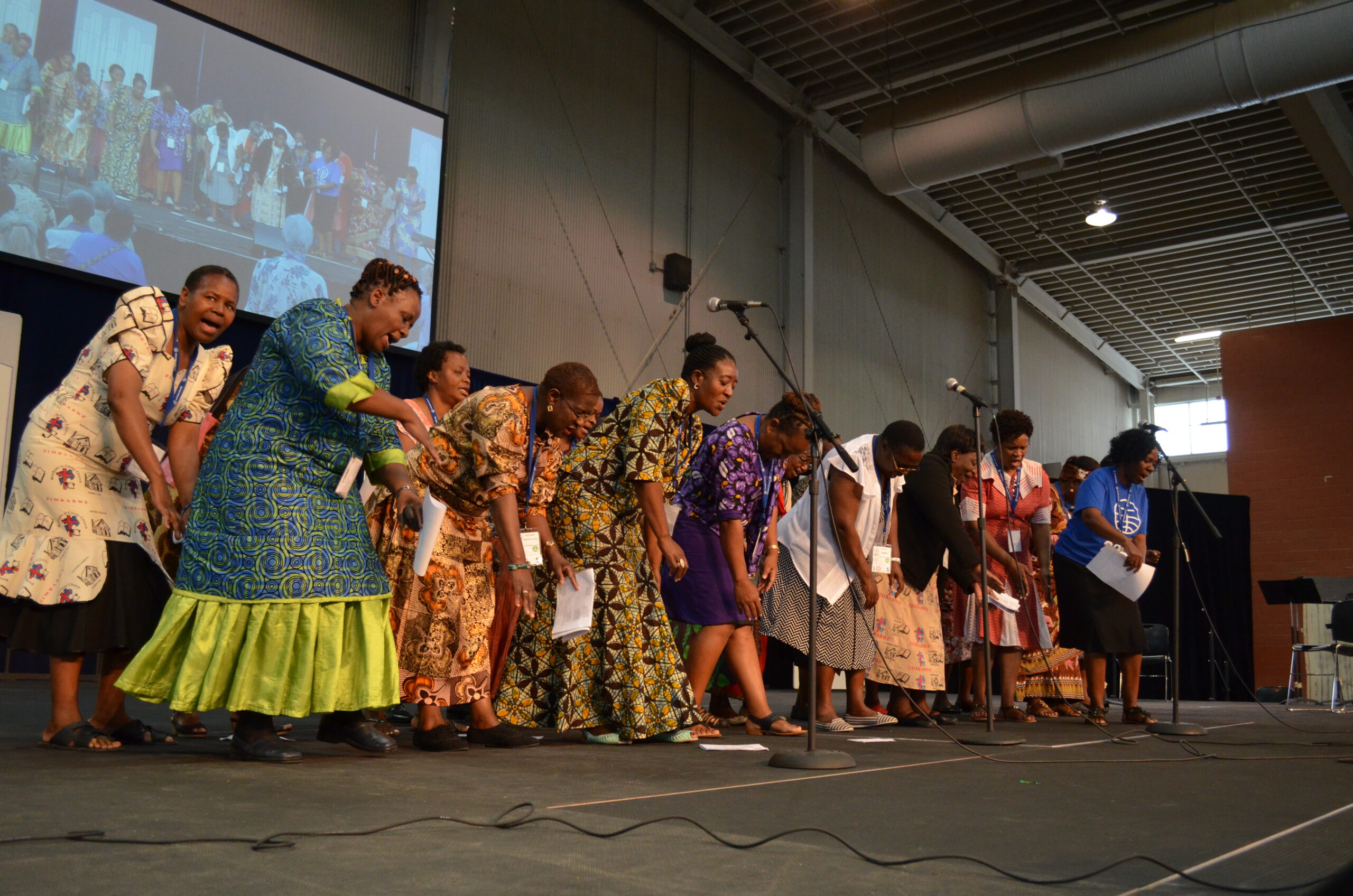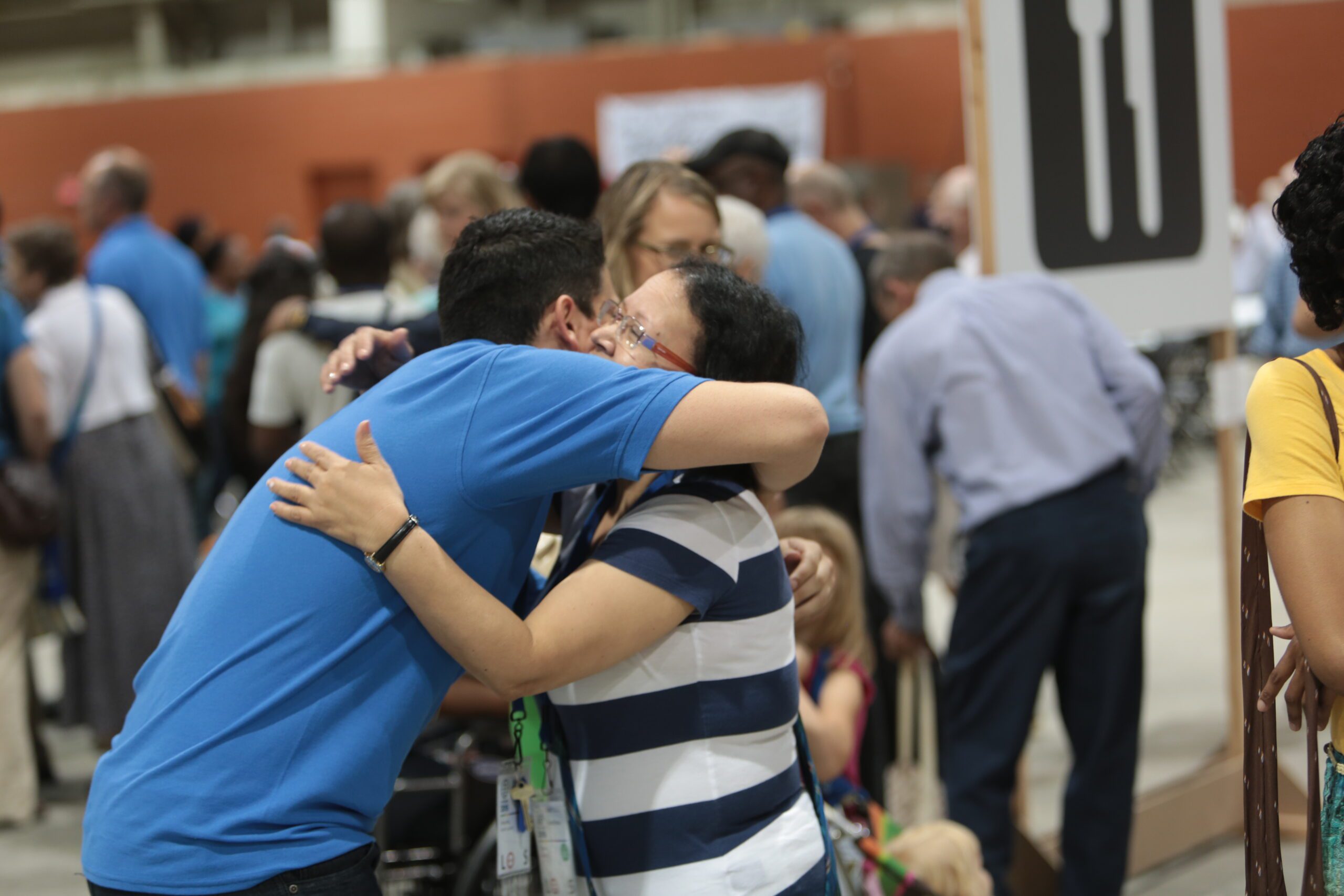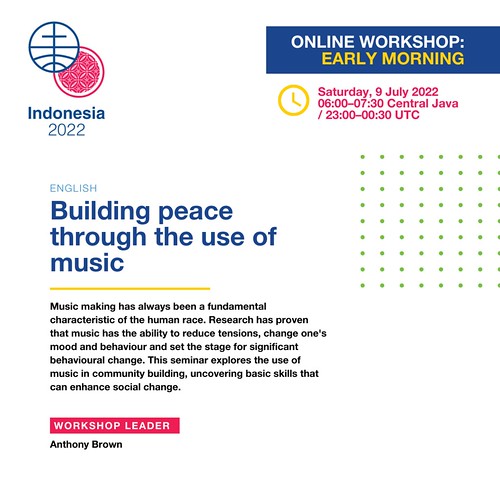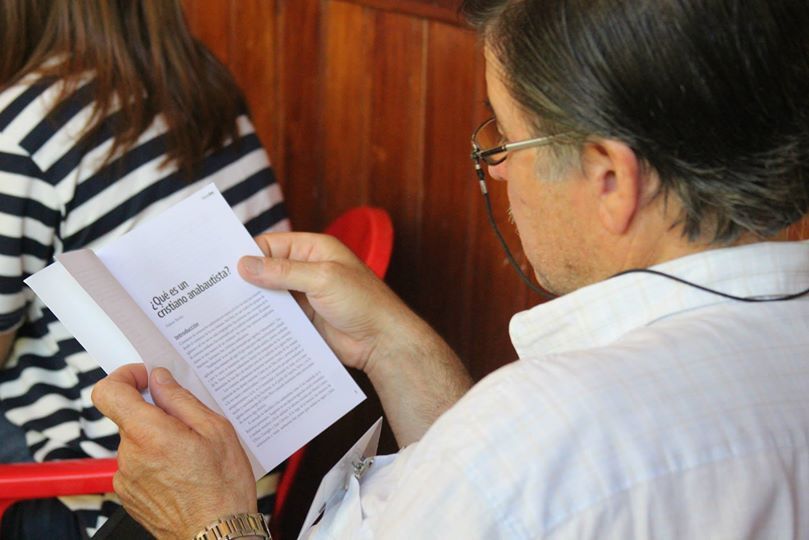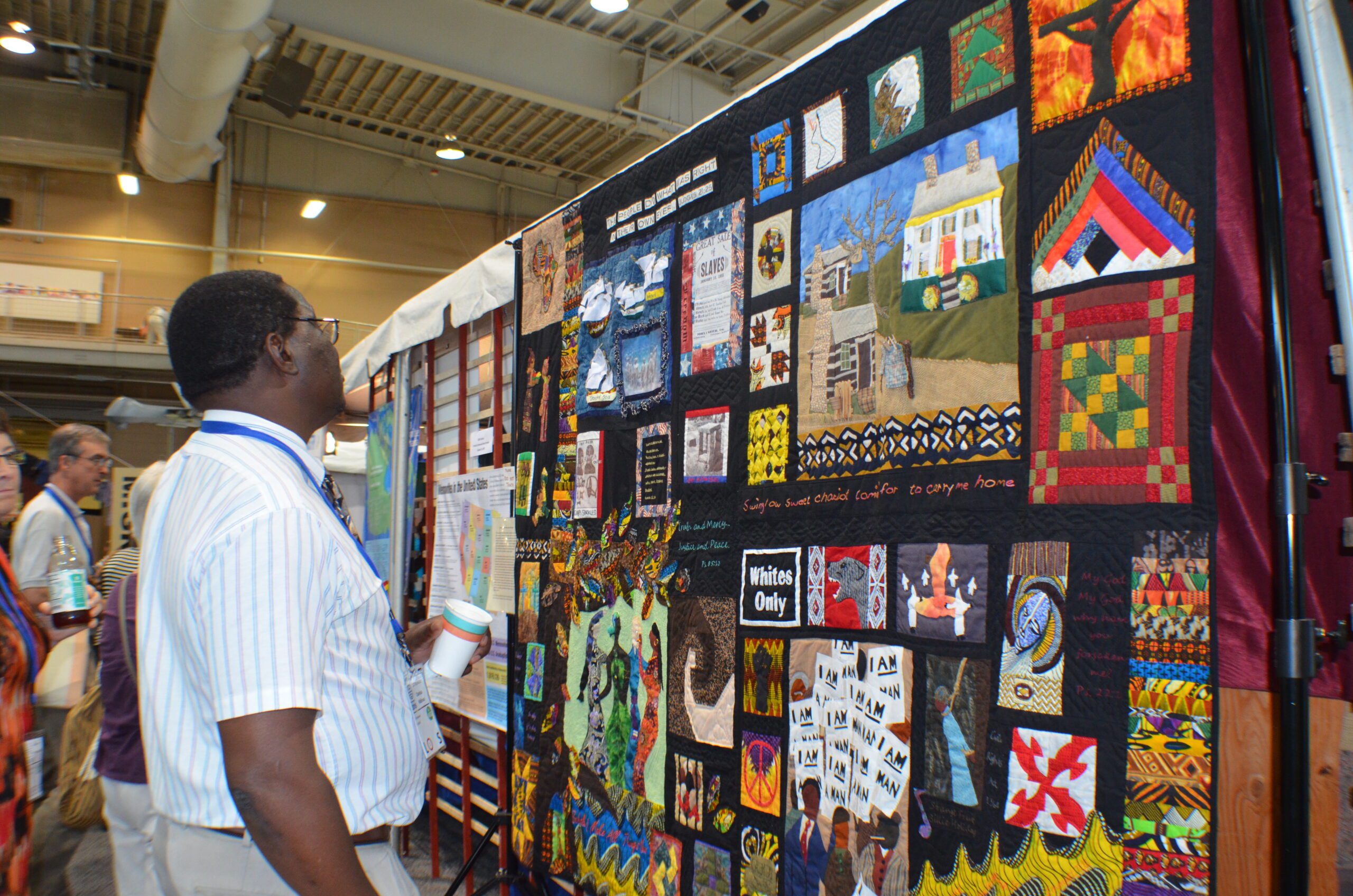-
How to make friends and pray for people – online
11 tips for using the Assembly Hub: You can meet brothers and sisters within the wide diversity of the Mennonite World Conference family in the Assembly Hub.
-
How the Assembly Hub crosses barriers of space
“It’s not the planned things that change us; it’s the encounters,” says Benjamin Isaak-Krauß, a two-time Assembly participant from Germany. Online participants find space for those barrier-crossing encounter at Mennonite World Conference’s event in the Assembly Hub. Event programs can be inspiring; however, the moments that make life change are often spontaneous connections over food
-
Assembly strives to lower carbon footprint
“Gathering” has become a bigger idea. Two years of changing pandemic restrictions taught people to be together virtually. Mennonite World Conference’s global Assembly benefits from this Zoom savvy. MWC’s event is open for anyone around the world to register to participate in these five days of fellowship from wherever they are. Additionally, recordings on the
-
Youth voices need to be heard
GYS: Life in the Spirit: Learn, Serve, Worship “What a unique opportunity to ask, observe and listen more than we speak,” says Christen Kong, Mennonite Church Canada delegate for the Global Youth Summit (GYS), 1-4 July 2022 in Salatiga, Indonesia. “I am looking forward to meeting other Mennonite youth and documenting the ways they live
-
GAPN Webinar: “Do I stay, or do I go?” June 27-29, 2022
Dear friends, We would like to invite you to be part of our upcoming Global Anabaptist Peace Network online gathering on June 27-29, 2022. We are looking forward to meeting all of you. On each of these days, we are planning to meet for 3 hours, starting at 8.00 (Winnipeg/Bogotá), 9.00 (Harrisonburg/La Paz), 15.00 (Johannesburg/Berlin),
-
MWC news: conference or communion
“Are you going to MWC?” It’s a trick question: Mennonite World Conference is not an event, but a family. Nevertheless, Indonesia 2022 – the well-known Assembly event that gathers Anabaptist-Mennonites from around the world – starts on 5 July 2022. There is much to prepare for the first-ever fully hybrid event for both on-site and
-
Joy in the midst of suffering
Gratitude to God and the global Anabaptist church fill my heart as I complete my term as MWC president. This planet-wide church has become my home, and the assembly in Indonesia will be a reunion, a gathering of siblings. In a world fractured by war and pandemic, I long to bond with peacemaking and generous
-
Join Assembly online
Host a watch party – for your Sunday service or at any other time Assembly Hub Poster How to register Speaker handout (all) Workshops Bulletin announcements Watch live? See time charts Ambassador kit Offering handout USA Canada You can access all content until 30 September 2022 as long as you register.
-
Wonder and witness, works and Word
Anabaptists and Pentecostals The Global Anabaptist Project* says: “Pentecostalism is the most rapidly growing expression of Christianity in the world, and Anabaptists are not foreigners to this reality.” Anabaptists around the world experience this by practicing an expression of faith that César García, general secretary of Mennonite World Conference, calls “Mennocostal.” Many Anabaptist-Mennonites today combine
-
Attend all online workshops
Pray, learn and dialogue together at Assembly “What’s exciting and inspiring about the workshops and meetings at MWC’s Assembly are the learnings that one receives from hearing new experiences and different teachings for following Jesus Christ,” says Pablo Stucky, Mennonite World Conference regional representative for Latin America. At an in-person event, registrants must choose one
-
Read with us!
“What if we could develop a shelf of books on subjects key to Anabaptist-Mennonites around the world, written by authors from many different countries, translated into and published in as many as possible of the main languages used by our peoples around the world?” This dream came to Merle and Phyllis Good while participating in
-
A multisensory experience of other countries
“The entire assembly is an opportunity to meet people from other countries,” says Jessica Mondal, coordinator of the Global Church Village. “But at the Global Church Village, we can see, touch and taste things from other cultures.” Displays and presentations teach about cultural and ecclesial practices in other regions. Storytelling puts faces to stories the

